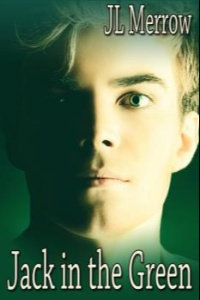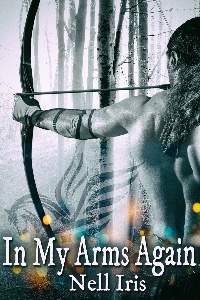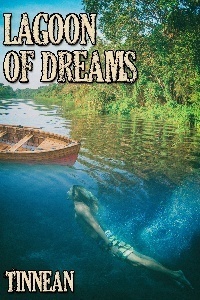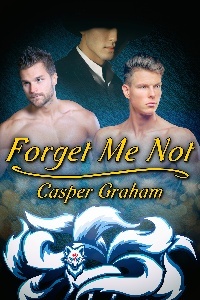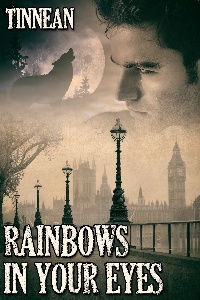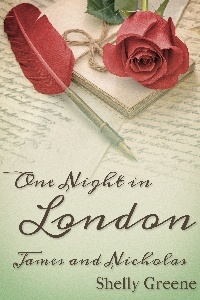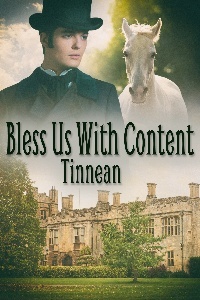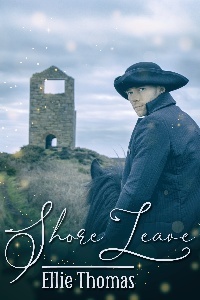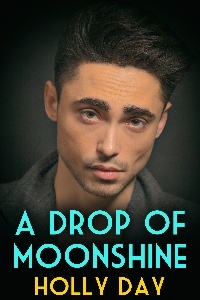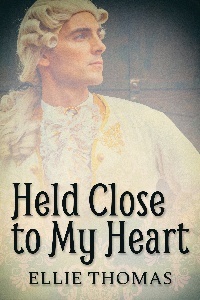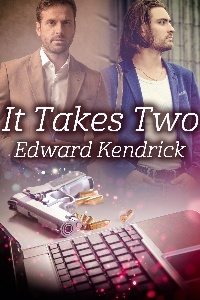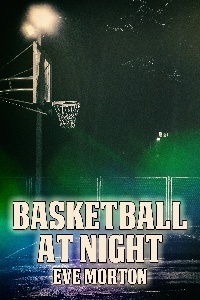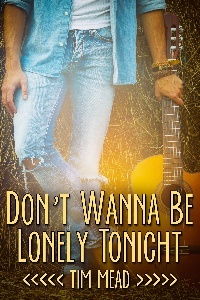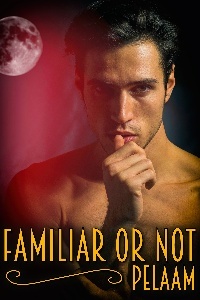No one's ever expected much from Dalton Irving, the reserved, sheltered, and bookish heir to the family fortune. So in order to secure their place in London's society, the Irvings have arranged for Dalton to marry the brother of a viscount. A man who comes from a family with a title and with quite the scandalous reputation. A man Dalton doesn't know. A man who's very publicly announced that he doesn't want to get married, least of all to Dalton, right in the middle of their engagement ball.
In an attempt to flee whispered words and sudden gossip and unexpected hurt from venomous words, Dalton finds comfort from the very last person he would have expected -- the wry, reclusive, and unsocial Edward Whitman, Duke of Wellingham.
Edward Whitman doesn't like most people on his best days. They're dull and predictable and care only about money and status. Tonight, however, is the engagement ball for his best friend's brother, so he'll make an appearance to assure the night's success even if the idea of anyone marrying young Dalton Irving puts a strange ache in the pit of his stomach.
But after Dalton's intended makes a mess of the ball, Edward suddenly finds himself alone with the young man, drawn to his wide-eyed curiosity and kindhearted generosity, his rambling and odd musings. Neither of them can imagine what this evening has in store for anyone, and all it takes is one night in London to change everything.
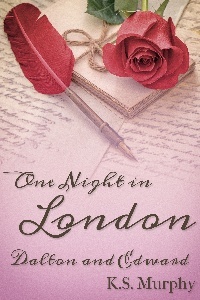
"Really?" Edward asked. "Has the world been that kind to you?"
"Well, er, no, not really, I suppose."
"Then please," he replied, "by all means, explain your theory. Why do you believe that people are mostly good?"
A soft smile touched Dalton's mouth. While he did have an answer to the question at hand, he couldn't be sure if it would make much sense to anyone else. Still, he'd been asked a question and thought Edward deserved his honesty. Dalton gestured to the shelves around them.
"Libraries."
When he didn't expand any further than that, Edward learned forward a bit.
"Did you say libraries?"
"I did, sir." Dalton nodded. "Not ... I don't mean the room itself, but the books in them. So many worlds here for us to escape to whenever we want."
"You mean like this one?"
When Edward bent forward to retrieve the book that had fallen, Dalton's cheeks warmed with another blush. For years he'd been able to keep his tastes and desires hidden from the world. He doubted very much that Edward Whitman would share this with anyone but that didn't stop the embarrassment from rising through him.
"Um, well, yes."
"Are you familiar with this Fellowes person?"
Eyes flicking down to the book Edward now skimmed through, Dalton considered lying. Not that there was much to tell. He hadn't read this one. The truth still seemed acceptable for now.
"I am," he answered. "I've not had the chance to read that one, though."
"It certainly had your attention," he teased. "You still consider this to be proof that people are mostly good?"
"I do, sir."
"Edward."
"What?"
"Please, call me Edward," he said. "As opposed to sir."
"Oh. Right. Edward."
This made Edward smile again and Dalton found that he enjoyed the way he seemed to be able to make a man of very little expressions smile. Edward held the book up again.
"So about this being proof that people are mostly good." Edward gave him something of a doubtful look. "You think this even though the world forces him to write under a fake name?"
"Ah. Yes?" Dalton shook his head, searching for a way to explain. "It's a shame that he needs to hide, I agree. He writes brilliantly. And he believes in his stories enough to tell them even though he might be scorned if the world finds out who he really is."
The expression on Edward's face was mostly interest and intrigue. Like he very much wanted to hear Dalton's thoughts on the matter, and Dalton's heart fluttered with excitement when he nodded.
"All right. Go on."
"I think John Fellowes believes in happy endings," he said. "He writes about heroes and villains and romance. I think he's searching for his own happy ending but he's willing to sacrifice his own to see that the object of his affections has one instead."
Book still in his hand, Edward took a good, hard look at it. Almost as though he was searching for proof of all that Dalton said. When he saw only the cover and nothing more, he lifted his gaze back to Dalton.
"You get all of that from a few lurid novels?"
Eyes dropping to his shoes, Dalton laced his fingers and squeezed his hands. He probably went too far. After all, he had no proof of any of that. He didn't even know who John Fellowes really was. For all he knew, John Fellowes was a cruel, cold-hearted person who scorned at the idea of love and only wrote about it for the profits. Because people like Dalton were silly enough to pay to read about it.
"I'm sorry," Dalton murmured. "I know, I'm being absurd."
"Quite the contrary, Dalton," Edward said, and Dalton, surprised, looked back at him. "I find your ideas to be insightful and very heartfelt. Please, tell me more."
"More?"
"Of your ideas," Edward clarified. "On why people are good."
Dalton bit back a grin. The world felt, for a moment, a little weightless. No one had ever expressed interest in the thoughts he had of the world and it felt nice. Dalton wanted the moment to last.
"Museums," he whispered, feeling oddly brave.
This saw Edward smiling again.
"Because of the art," he replied, and it wasn't a question, and he was absolutely correct.
"Yes," Dalton said. "Because of the art. And churches."
"Because of God?"
"Because of the windows."
Edward shocked him with a loud, boisterous laugh that bubbled through his chest and bounced through the room. The fire even danced with amusement, a few crackles and pops laughing right along.
"Oh, Dalton Irving," he laughed. "You see the world, don't you, boy? Better than most of us, I imagine."
Permitting himself a soft chuckle, Dalton thought it might be acceptable to share in the humor.
"You don't think I'm odd?"
"Odd?" Edward shrugged. "Yes, I do. I do think you're odd. And so what if you are? Would that be so bad?"
Well, according to everyone else he knew, yes. Yes, being odd was a bad thing. They actually always told him very specifically not to act like himself.
"But everyone else --"
"Is dull and boring," he interrupted. "They only care about money and status. I find you to be delightful and refreshing. I think it would be a privilege to know you better."
Dalton could hardly believe his ears. Everything he knew about Edward Whitman went against this. He did not take kindly to just anyone, least of all some random person who wandered into a library where he'd been seeking solace.


